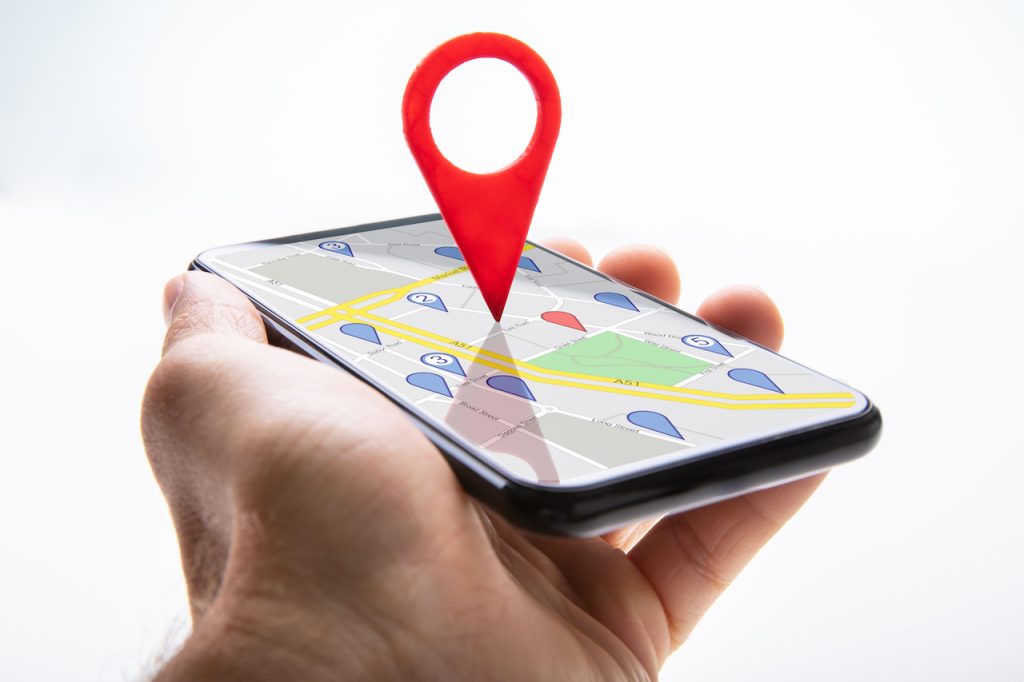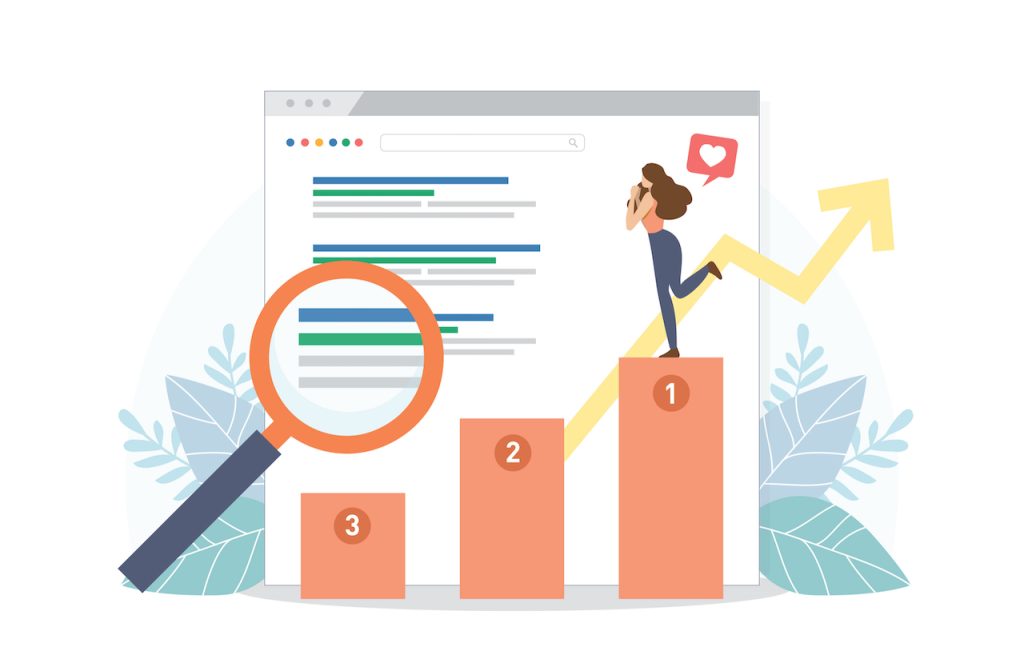Search engine optimisation, or SEO, is very complicated and messy. There are over 200 secret ranking factors that only Google, or the other search engines such as Bing, know about. Plus they constantly change their algorithm and the balance of the ranking factors.
But don’t let that put you off because local SEO matters for the success of your business. We are here to demystify and explain how local SEO works for small businesses like yours.
Despite the seeming complexities of search engine optimisation, at its heart it’s about people’s behaviour and giving them great, quality content. This is precisely what good marketing does, and therefore the ‘rules of the game’ are not so vastly different even with the technical aspects factored in.
We are going to give you an overview of the world of local SEO, why it’s important to get it right for your business and some of the key principles relating.
What is SEO?
Starting from the top, search engine optimisation, or SEO for short, is the process for getting your website and content to achieve high visibility in the search results, without directly paying Google or Bing in order to do so.
Taking Google as an example, if you conduct a search the results page could comprise a combination of different results:
- Paid for ads – these look like ordinary text ads but will have small Ads by the side of them. Over the years, the format of these have changed from being in a bright yellow box, to a more subtle yellow background to nothing at all. Google Ads work in a different and distinct way to the rest of the search results and are often a lynchpin for many small businesses’ sales process.
- Shopping / image ads – these are highly visible and are paid for ads again, but are more engaging because of their visual nature.
- Features snippets – these appear in accordion boxes and often appear to answer questions, provide lists, top 10/best answers etc. Google identifies the ‘best answer’ to a question and has effectively pulled that content into its search results. It is a great way of getting traffic to your site, building your authority on a given subject and is delivered through search engine optimisation.
- Maps and local services – depending on your search, a map and local directory may appear identifying local service providers. This is certainly something that ought to feature in a local SEO strategy.
- Organic search results – then everything else! These are all of the search results Google or Bing have identified as being relevant and appropriate to the user’s search query. The rankings are based on over 200 factors. There is a page title, meta description, an optimised URL and possibly sitelinks that will appear (pages within your site Google has identified as being particularly good and relevant to users). This listing is your business’ first ‘sales-pitch’ to a potential prospect.
How local SEO works: SEO versus local SEO
Local SEO refers to any search which has a location factor in it. For example ‘marketing agency in Sussex’, or ‘Haywards Heath based electrician’. It is very often service or product-based, as the user is looking for something near to them to do, buy, take part in, visit etc.
Local SEO used to be about demonstrating your website, and therefore business, covered a geographical area. In our case that would have been Sussex, Haywards Heath, Eastbourne through to the South East appearing multiple times across our website. That is not the case nowadays though.

How local SEO works for small businesses, is interpreted and calculated by Google’s algorithm in many different ways:
- Google My Business profile – which gives your location and address, and can appear in the search results too (known as the Knowledge Graph). You can read our guide to setting up and managing your Google My Business in an earlier blog article.
- Understanding of your location and your distance to where the person is searching from. Many searches have a location qualifier in them such as Sussex, or Bexhill but people also use ‘near me’ a lot so Google works out where the user is versus where business’ are located in order to deliver relevant results
- How active you are in the local community. Basically the more active and engaged a member of the local community you are, the more likely you are to appear in news sites, local listings and be linked to from another website in that geographical area. This gives Google strong signals as to the geographical area you cover and where you are based.
What are local SEO services?
There are a whole host of local SEO service providers, tools, advice and tips available. It’s very easy to become confused, overwhelmed and come to the conclusion that it’s either too hard or too expensive for your small business to do. We can tell you, none of that is true.
There is an appropriate level to go to with your local SEO to ensure you get sufficient return on your investment but you don’t need to necessarily be doing everything perfectly. There does become a point of diminishing returns and your marketing investment would be better spent elsewhere.
Most importantly, local SEO success is within your reach.

The key features though to how local SEO works, and therefore what services you should be looking for are:
- Technical – unless you are a technical expert, it’s unlikely you’d even go near this side of SEO. This is about the code, backend, setup etc of your site. This is what the search engine algorithm ‘reads’ to understand what your website is about and how well it functions e.g. the amount of time it takes to load up for a user (the golden rule here is under 3 seconds!)
- Backlinks – this is connected back to how active you are in your local community but also how helpful and useful your website content is. If others are sharing your content and linking to your site, Google and Bing understand your site must be pretty important and useful to people, and therefore will serve it up in the results more often. For example, event listings, sponsorships, participating in community events etc. These need to be genuine and relevant links though (people have tried to scam the algorithm before and paid the price!)
- Understanding your audience – as the search engine algorithm has become more advanced, it increasingly mimics real user behaviour. It knows how customers talk and refer to your products and services, it understands the type of answer/results they are looking for e.g. wanting to buy something, researching, looking for options, wanting an answer to a question etc. The more your website and content is aligned to what users want, the higher Google and Bing will rank you. A good example is conveyancing. That may be the technical term for the service a solicitor provides but in reality, customers will use phrases around buying a new home. It’s important your website and content matches that. In order to do that, any local SEO service provider needs to research and understand your audience’s language and needs.
- Content – this should be at the heart of any local SEO service provision or strategy. Good quality, regular, useful and engaging content that answer’s users’ questions and queries, and links through to the relevant service/product pages of your website. It’s been said for years, but really is true – content is King. Any local SEO marketing agency should research and understand your audience, create a content plan aligned to fulfilling their needs, create well-written and genuinely useful content, share that content and attempt to get others to share and link to it too.
How local SEO works: How long does local SEO take to have an impact?
This depends largely on how long it takes Google and Bing to index your site and re-index it, and re-index it again. It can take anything from a few days to six months!
But the more frequently you update your website with useful, high-quality and new content can help speed up this process. Additionally, ensure your sitemap is submitted via Google’s and Bing’s webmaster tools as that can help speed up the process.
What difference local SEO makes to small business performance
Local SEO is not a ‘nice to have’, it is essential.
Most small businesses serve a particular community and geographical area. If your website is not visible and being shown in the search results for users in your target geography, that is potential prospects and inquiries you are missing out on.
You need your website to be visible for people searching for ‘plumbers in Sussex’ as well as ‘plumbers near me’ or just ‘plumbers’. For the second and third keyword examples given, Google infers your business’ location and the location signals of the user to figure out the best search results to show them. Someone in Manchester will get very different results to someone in Haywards Heath or Eastbourne for example.
By making your business highly visible for local SEO search results, you then have the opportunity to sell your products and services – initially through your search result listing and then via your own website. There is a direct correlation between your ranking position and the amount of traffic that comes to your website. This is why local SEO matters to your business. Without that visibility and subsequent traffic, you have significantly fewer prospects to market and sell too. You are effectively hiding from your customers!
Now you know how local SEO works for small businesses...what should you do next?









